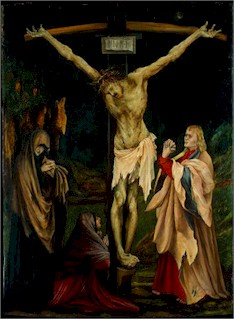 |
Released by an
Easter Hymn A German youth was
taken prisoner by the Turks, and since no one effected his release, was compelled to live
among these fanatical followers of Mohammed. He grew up, but never relinquished his
Lutheran faith. Jesus was his Savior, Jesus, the blessed Lord who died for our offenses
and was raised again for our justification.
One Easter morning he had to plow his Mohammed master’s field, but nonetheless as he
followed the plow he kept the great festival day in mind and his heart rejoiced in the
risen Lord. As he walked in the furrow behind the plow, he sang in his mother tongue one
of Luther’s good old Easter hymns: “Jesus Christ today is risen, and o’er
death triumphant reign; leading sin herself in chains. Kyrie eleison.”
At the moment the representative of the German government, who was stationed at
Constantinople, happened to be riding by. Amazed by hearing a German religious hymn in
that land and place, he got out his carriage and went to the singer. The man told him his
story, and closed by saying: “I don’t think that I’ll ever be able to
return to fatherland, but I shall preserve my Christian faith, though I live among Turks.
I know that this is Easter day, and though I am physically far removed from my fellow
Christians, nonetheless I celebrate the joyous resurrection festival in spiritual
communion with them.”
The officer of the German government succeeded in obtaining the man’s freedom, and he
went back to the fatherland where he lived to celebrate Easter day with the risen
Lord.
– Unknown Source
|
 |


 Thoughts for
Easter
Thoughts for
Easter